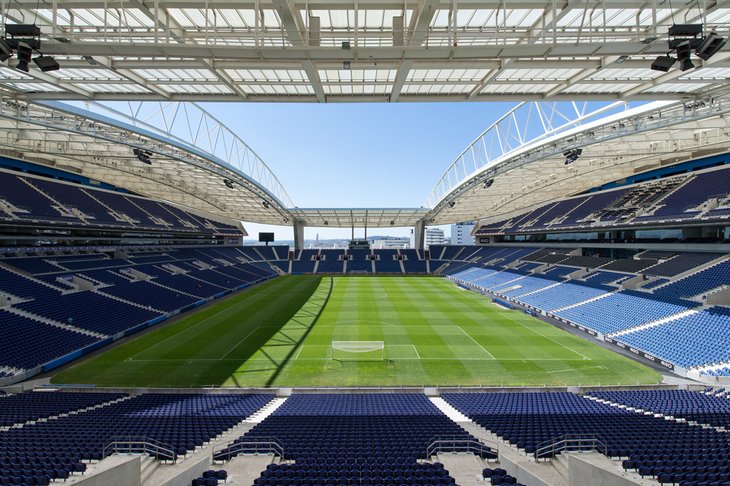The Dragão Stadium in Porto is the first in the world to be colour-blind inclusive
Dulce Pereira Abrantes
Article

Miguel Nogueira
The Futebol Clube do Porto is implementing the ColorADD code system to enable those whose ability to see colour or differences in colour is decreased to have a better experience when in the stadium, visiting or watching a football game. This is the first stadium in the world to implement this code system. It is estimated that 350 million people around the world are Colorblind.
The Futebol Clube do Porto is implementing the ColorADD code system to enable those whose ability to see colour or differences in colour is decreased to have a better experience when in the stadium, visiting or watching a football game. This is the first stadium in the world to implement this code system. It is estimated that 350 million people around the world are Colorblind.
The ColorADD system is a code language that enables the colorblind to identify colours, with a wide infinite spectrum of use that enables those who have colour vison impairment with certain activities.
“Inclusion by colour is the most important axis within the sustainability work developed, strengthening a solution that, by being innovative, will provide the answer to comfort and safety needs to the audiences in the Dragão Stadium”, as written in a statement by Futebol Clube do Porto.
It is worth mentioning that this initiative is aligned with the 2030 Sustainable Development Goals Agenda.
The implementing of this system is an ongoing process, whenever colour is a reason for difference”, declared Teresa Sousa, in-charge of the Sustainability area of the FC Porto. The first phase of the ColorADD code is being applied in parking lots and also in the training vests of players.
This code was created in 2010 by Miguel Neiva, from Porto, and it is now present in over 90 countries, in different sectors of activity. It is implemented in the Municipal Parking Lot of Trindade, in Porto, as of 2015.